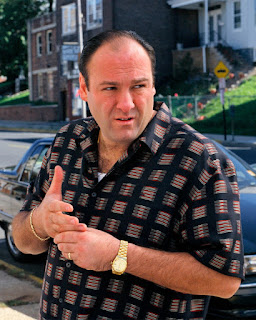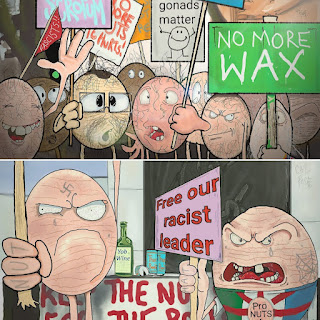It's Compelling How Human Flaws Shape Character
How People See You
Fair enough, a stay-at-home dad is expected to engage in various activities with the kids, you know, like reading to them, cooking lunch or playing games and whatever, while also keeping tabs on the housework. We all have our ways of working. Once, there was a time, when the entitled breadwinning husband, who expected a pristine house and a hot meal at the table, was the norm. We've known that's sexist for quite a while now.
I'd like to call myself a house-husband, when I think of the water fights against my kids and their friends the street, but, I'd also like to call myself a billionaire, genius philanthropist—it's a stretch. This is where I could just hide from the vane judgements that float around the heads of certain people who mention my name or give you that dismissive glance that means you're beneath them. In all truth, although the concept of a father who stays at home once grew in popularity, it isn't accepted by all walks of life; from my experiences, even in this age of progressive thinking, politicians expect everyone to work—just turn that disability into an ability and fly!
I Want to Fly and Fetch Some Bread
I should be the breadwinner, traditionally speaking, easier said, however; the disability status always seems like a cop-out to Joe Bloggs, and even myself initially, but health is blatantly honest: pending spinal surgery and eye transplants, foot isssues, hip bursa problems, arthritis and that's my better half!
.jpg)
Hold On, We Had it Tough!
We had to home educate because the mainstream f*ckers didn't help our kids, but now, they've well surpassed expectations! We had to stay home, nontheless; dark times of severe mental health nearly claimed my daughters life! We watched her drop to six stone, and I remember us having to hide anything sharp, almost 24/7—even checking for broken glass or empty cans when we were out.
Dark Times
We entertained sending our daughter to a hospital, it was horrific. I'm so glad we didn't! Our NHS mental health hospitals were abysmal, and still are. We recovered together, as a family. These things are happening to people right now, even as you read this, across the UK children's and adolescent mental health is faltering, this means the bulk of psychiatric support is left to parents and guardians, who in turn, are being pushed into employment by the ignorant right wing! I was told by a CAMHS nurse that children often self injure in ward, suicides happen she calmly mentioned this, adding that bullying cannot always be prevented! Recent televised documentaries have shown the extent of such failures across children's mental health care. I feel for other parents.
Mental Health is Health that's Gone Absolutely Mental
Before those years, when it was plain sailing for us, I remember visiting the disability employment service provider, to try and get back into work. She told me I shouldn't be allowed inside anyone's home! You see, my goal was to assess NVQs for a living, which involved home visits; I only wanted a job. She only saw a 'Bipolar' when she talked at me. She openly characterised 'us all' with her historical anecdotes about working with 'us lot,' as if she had exclusivity over my illness, a thing which had somehow made me a new breed of human known as a 'manic'. She told me that she knew why I struggled with work—it was surreal. It was not bipolarity alone, that's for sure. I think that was a government service that destroyed my path to employment, but I had been building myself up for that meeting for days.
Like Frank, I share fears around workplace performance, in fact I struggle with employment. A while ago, my doctor told me I have a kind of post traumatic stress disorder (PTSD); this, as well as the bipolarity, explains a few thing; the work based trauma. Well, life's just that for most of us, isn't it? How we prioritize mental health and seek support isn't straightforward. You might acquire a troublesome coping mechanism such as, drinking a few pints of beer or smoking a spliff before going into the dreaded workplace environment; also, pulling another sicky, or getting benzos from off the doctor.
The Cruelty of People
You can practice Buddhist mindfulness as much as you like; it won't kill that pending doom, the morbid dread, which all affect your inability to concentrate or listen. Those unshakable morbid feelings as you try to go in to work are vile. Maintaining good mental health is crucial 'they say'. If I could have behaved more like a regular Joe during the onset of my mood disorder as a teenager, I would have never been bullied by those philistines in that industrial nightmare.

Cowardly men watched me being bullied by other adults; I was sixteen years old. On two occasions, grown men of the same scummy clique molested me, one low-life squeezed aggressively—unspeakable embarrassment, shame, and physical pain. All day, everyday, this group ridiculed and mocked me. I was flashed and threatened by adult men. My self respect diminished.
I eventually discussed the situation with my father, who encouraged me to very much continue going in, and to win their respect. There were skills to be had, to secure my future. Many of us were made redundant after a few months, including myself. I was delighted! Funnily enough, I got a job with my dad. One random day within my first several months of commencing the job, a worker anxiously came running towards me to say my dad had taken a full on sucker punch to the face. He was taken off site! His face was like a balloon. Such thuggery, I thought, seemed to surround the working class.
Conclusively: This Pretty Was Grim.
His company had treated him terribly during every decade of his loyal service. As you might expect, none of this helped me develop any faith in the employment sector. Sadly so many like me will struggle in this financial climate. When I think of those poor souls worse off than I am, it looks bleak; suicide rates will undoubtedly increase, while self esteem and income continue to fall.
.jpg) |
| Or the unemployed poor man? |
.jpg)
.jpg)







No comments:
Post a Comment
What are your thoughts?